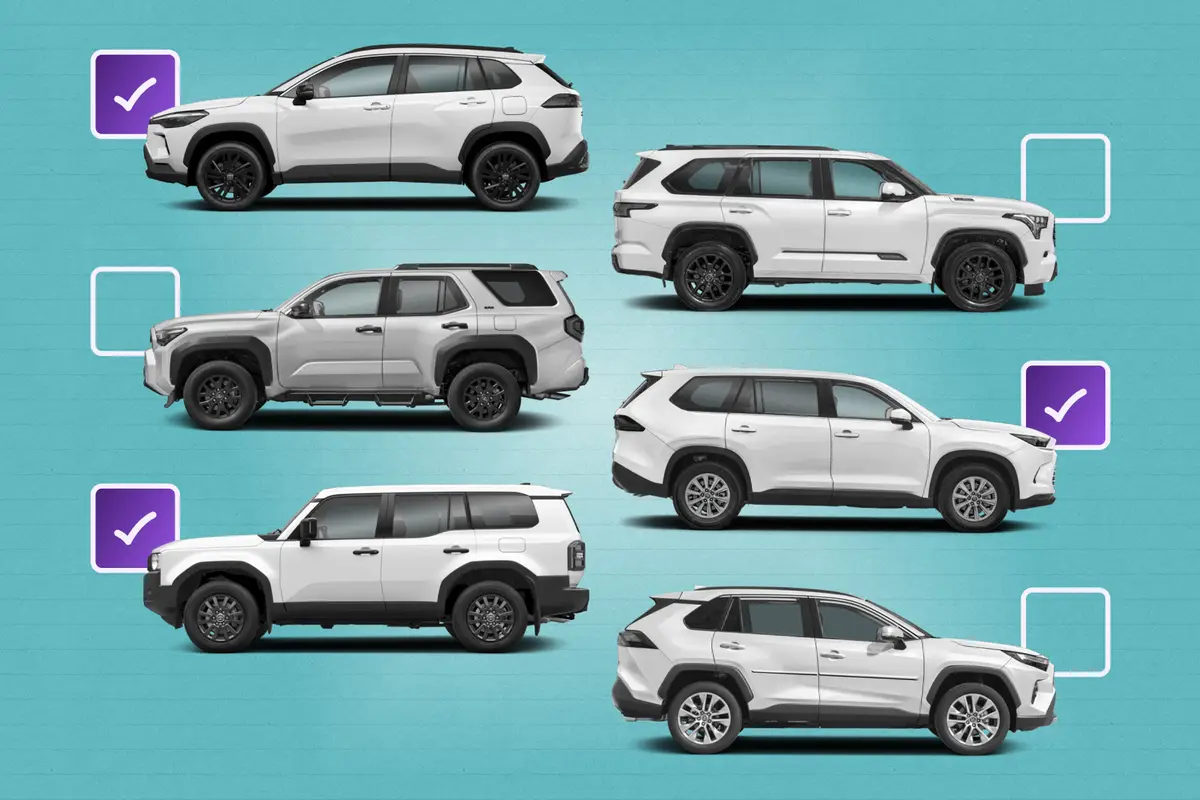How Long Are Car Seats Good For?
It makes sense for most things to have an expiration date: foods, medicines, fashion choices, etc. But what about car seats? Yes, they have a shelf life too. But why and how long are they good for? And how safe are hand-me-down seats?
Related: 2020 Car Seat Check Honor Roll: Best New Cars for Car Seats
- ${price_badge()}
- ${ami_badge()}
- ${battery_badge()}${ev_report_link()}
- ${hot_car_badge()}
- ${award_badge()}
- ${cpo_badge()}
${price_badge_description}
${ami_badge_description}
The EV Battery Rating is based on this vehicle's current expected range relative to the vehicles expected range when new. ${battery_badge_text}
This vehicle is certified pre-owned, backed by a manufacturer warranty, and typically undergoes a rigorous multi-point inspection to ensure quality and reliability.
This vehicle is currently in high demand given its competitive price, desirable features, and overall condition, and may have a higher chance of selling quickly.
Shop the 2020 Hyundai Palisade near you


We reached out to a range of experts to answer those questions. Here’s what we found:
When Do Car Seats Expire?
Your car seat’s expiration date may be on a sticker on the back or side of the seat or molded into the shell; the information can also sometimes be found in the car seat’s manual.
Sarah Tilton, a child safety advocacy manager at child-safety-seat brand Britax, warned that usually the clock starts the day the seats were built, not the day you bought them, so be sure to check the date of the manufacturer label on the seat.
Why Do They Expire?
Car seats expire for several reasons. Older seats could be missing parts or owner’s manuals, and older seats could also fail to meet current government safety standards, the National Highway Traffic Safety Administration warned in an email to Cars.com.
Along those lines, Lorrie Walker, a technical adviser and training manager at the nonprofit child-safety advocacy organization Safe Kids Worldwide, notes that car seats are getting safer all the time through materials and design. Get a used seat, and you’ll miss out on those benefits.
Temperatures and wear-and-tear also play a big part. A vehicle interior can weather years of both hot and cold temperatures, and that constant stress can break down a car seat’s plastic shell and degrade other components over time.
Temperature swings are just one aspect of car-seat aging, Walker said. Over the course of six or eight years, sheer momentum can take its toll.
“You may have stopped suddenly 50 times over the course of that eight years,” Walker said. “Each time you do that, the webbing stretches a little bit. And is it going to break? Probably not. … But would you really want to take that chance?”
Can I Use a Hand-Me-Down Car Seat?
Sometimes. Russ Rader, a spokesman for the Insurance Institute for Highway Safety, warned that used seats could have lurking recalls or a crash history you don’t know about. Tilton, meanwhile, advised that you ensure the seat is from someone you trust who can give an honest account of its history and any possible damage.
NHTSA advises that it’s OK to accept a used car seat if it follows the federal agency’s used-car-seat safety checklist: The seat has all its parts, labels and instruction manuals, and it hasn’t been recalled or in a moderate-to-severe crash.
What’s Next?
Your child should stay in the car seat until he or she hits the prescribed height or weight limits of the seat — info also found on a sticker or in the owner’s manual — or it hits its expiration date. Whether you opt for a new car seat or a hand-me-down when it’s time for a new one, it’s important to re-register it with NHTSA if you get it secondhand — otherwise, you may not hear about important safety recalls.
Related video:
More From Cars.com:
- Best Used Cars for Car Seats
- We Call B.S. on Car Seat Safety Myths
- Search Cars.com’s Car Seat Checks
- Find Your Next Car
Editor’s note: This story was updated on Oct. 15, 2020, to clarify the location of the car seat’s expiration date.
Cars.com’s Editorial department is your source for automotive news and reviews. In line with Cars.com’s long-standing ethics policy, editors and reviewers don’t accept gifts or free trips from automakers. The Editorial department is independent of Cars.com’s advertising, sales and sponsored content departments.
Featured stories



